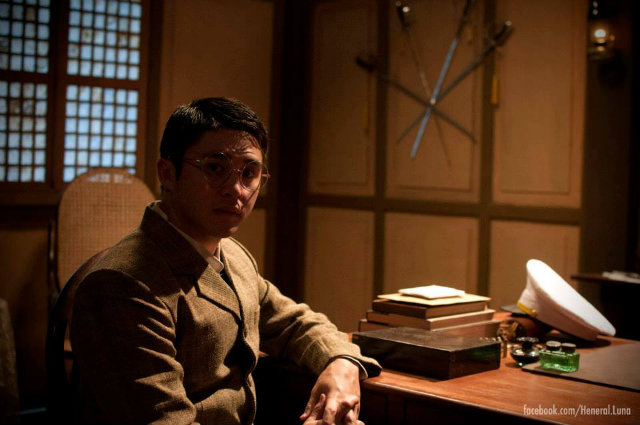![]()
MANILA, Philippines - On September 26, Rappler and the United Nations in the Philippines, through the United Nations Development Program, joined the global community through the Social Good Summit.
Organized around the UN General Assembly, the Social Good Summit aims to start a global conversation on possible solutions to the world’s toughest questions. (Read: What you need to know about the Social Good Summit)
This year, the summit focuses on the Sustainable Development Goals or Global Goals adopted by world leaders on September 25 at the United Nations General Assembly. The agenda aims to end extreme poverty, fight inequality and injustice, and fix climate change by 2030.
With the theme, Innovation +SocialGood: #2030Now #TheLeaderIWant, the Manila Social Good Summit explored how these Global Goals may be reached by 2030 using key ingredients: technology and innovation; engaged and active communities; competent and accountable leaders.
Innovation +SocialGood was held at the Newport Performing Arts Theater, Resorts World Manila in Pasay City. The summit explored the power of technology and the vital roles leaders play in fostering innovative ideas that can address the problems of our day.
You can follow the event through this blog:
Check out the program and the speaker profiles below:
RapplerTalks +SocialGood
10:00 - 12:00 PM
Select partners will serve as “conversation leaders” and will be asked to deliver short talks to trigger conversations around key issues and topics. |
9:00 - 10:00 am | Registration |
10:00 - 10:05 am | Welcome Remarks Zak Yuson
Director for Civic Engagement, MovePH |
10:05 - 10:10 am | Video: A year of Moving the Philippines |
10:10 - 10:20 am | Information as a lifeline
Innovations in disaster information management
Matthew Jakab
Philippines Activity Leader - Community Safety Branch
Geoscience Australia
|
10:20 - 10:30 am | Bridging the digital divide: Communications technology and the social media for the bottom of the pyramid
Bong Esguerra
Head for CSR
Globe Telecom Darwin Flores
VP for Community Partnerships
Smart Communications |
10:30 - 10:50 am | ShareSpace # 1 Celso Caballero
Weather Philippines Dr. Reena Estuar
eBayanihan Marina Azcarete
FireChat Eugene A. Villar
Open Street Map Community Myles Delfin
Bike Scouts Collen Curran
PDRF |
10:50 - 11:00 am | Why we tell stories
#StoryofTheNation Voltaire Tupaz
MovePH Dominic Go
RapplerX |
11:00 - 11:10 am | Data-driven leadership
Innovations in analyzing open data and big data to improve governance and transparency Kai Kaiser
Senior Economist, World Bank |
11:10 - 11:20 am | Securing our common future
Innovations in development programs that can exponentially change the world Ramya Gopalan
Innovation Specialist
UNDP |
11:20 - 11:40 am | ShareSpace # 2
Minding the gap Cdr. Armand Balilo
World Vision Francesca Zimmer-Santos
Co.Lab Patrick Gentry
Sprout Amb. Henrietta de Villa
PPCRV Ona Caritos
Lente | Task Force 2016
Joey Dela Cruz
YES4SDG Fr. Xavier Alpasa, SJ
Simbahang Lingkod ng Bayan |
11:40 - 11:45 am | Closing Remarks Maria Ressa
CEO, Rappler |
11:45 - 12:00 pm | Coffee Break |
| PACE - Rappler MOA signing Maria Ressa
CEO, Rappler Marco Polo
PACE President |
Innovation +SocialGood Plenary
1:00 - 5:30 PM
PROGRAM HOSTS:
Chay Hofileña, Rappler Investigative Desk&
Manny Ayala,Chairman of the Board, Rappler.com and CEO, Hatchd Digital
|
| | |
12:00 - 1:00 pm | Registration for the Plenary Session |
1:00 to 1:05 pm | Philippine National Anthem |
1:05 to 1:10 pm | Welcome Remarks Maria Ressa,
CEO, Rappler
|
1:10 to 1:30 pm | The Challenge Today:
Powering up social enterprise through competition & technology Hon. Bam Aquino
Senator |
1:30 to 2:00 pm | KEYNOTE:
Technology and Justice
How technology strengthens the justice system Hon. Maria Lourdes Sereno
Chief Justice, Philippine Supreme Court |
2:00 to 2:20 PM | The Global Goals for
Sustainable Development Ola Almgren
UN Resident Coordinator
UNDP Resident Representative in the Philippines |
2:20 to 2:50 PM | Technology, development and leadership Maria Ressa
CEO and Executive Editor, Rappler |
2:50 to 3:10 pm | Big data, deep learning and smart nations Mario Domingo
Founder and Managing Partner, lloopp Natural Intelligence Solutions
|
3:10 to 3:40 pm | Panel discussion and Q & A on Technology, leadership and the Global Goals: Mario Domingo, lloopp Natural Intelligence Solutions Kai Kaiser, World Bank Ramya Gopalan, UNDP Innovation Specialist Regina Estuar, Ateneo eBayanihan Moderated by
Maria Ressa
CEO, Rappler |
3:40 to 4:40 pm | Leadership #2030Now Hon. Leni Robredo
Representative, 3rd District of Camarines Sur
House of Representatives Joey Salceda
Governor, Albay |
| Q and A : Leadership #2030NOW
|
4:50 to 5:05 | #TheLeaderIWant and You
Voter registration challenge launch Hon. Andres Bautista
Chairman
Commission on Elections Maria Ressa
CEO and Executive Editor, Rappler Henrietta De Villa
Parish Pastoral Council for Responsible Voting (PPCRV) Rupert Ambil
Executive Director
Move.ph |
5:05 to 5:20 pm | Elections and #2030NOW:
Why voter participation in elections is important for social good Hon. Andres Bautista
Chairman
Commission on Elections |
5:20 to 5:30 pm | Closing Remarks, Plenary
Glenda M. Gloria
Managing Editor, Rappler |
5:30 to 6:00 pm | Musical Performance Reese Lansangan |
MOVE AWARDS NIGHT
6:00 - 8:30 PM
The Move Awards celebrates outstanding Filipinos who create change – not just for themselves, but also for others. They are making a difference in their communities, bringing new ideas to the table, and displaying excellence in their field. |
6:00 to 6:05 pm | Opening Remarks
Zak Yuson |
6:05 to 6:10 pm | Move Awards : Philosophy and Vision
Maria Ressa
CEO, Rappler |
6:10 to 6:11 pm | Thematic video |
6:11 to 6:35 pm | Awards proper |
| For Category:
Civic Mover Presented by:
Dingdong Dantes
Commissioner, National Youth Commission |
| For Category:
Creative Mover Presented by:
Pepe Diokno
Filmmaker |
| For Category:
Enterprise Mover Presented by:
Steve Benitez
President and CEO
Bo’s Coffee |
| For Category:
Global Mover Presented by:
Patricia Evangelista
Award-winning multimedia journalist
Multimedia Manager, Rappler |
| For Category:
Tech Mover Presented by
Mr. Ken Lingan
Google Philippines |
6:50 to 7:00 pm | Move Communities Recognition and Closing Remarks Rupert Ambil
Executive Director
Move.PH |
| Entertainment Number Monica Cuenco and
Ronnie Liang
Stars of “Bituing walang Ningning,” the Musicale |
**To go back to the program, click here** | **To go back to the livestream, click here**
About the RapplerTalks +SocialGood resource persons (in alphabetical order):
![Bong Esguerra]() Fernando "Bong" Esguerra Jr. is the head of Globe's Corporate Social Responsibility (CSR). Globe's CSR projects focuses on building the information and communications technology capacities of public high schools, local governments, environmental organizations, and social enterprises. They also have volunteer programs and electronic waste recycling initiatives. Esguerra was also a disaster preparedness panelist in 2013's Social Good Summit.
Fernando "Bong" Esguerra Jr. is the head of Globe's Corporate Social Responsibility (CSR). Globe's CSR projects focuses on building the information and communications technology capacities of public high schools, local governments, environmental organizations, and social enterprises. They also have volunteer programs and electronic waste recycling initiatives. Esguerra was also a disaster preparedness panelist in 2013's Social Good Summit.
![Darwin Flores ID]() For the last 12 years, Darwin Flores has been leading Smart's community engagement initiatives for the base of the pyramid communities in the Philippines. He heads the department responsible for developing ICT-oriented, socially relevant programs in the areas of education, health, disaster preparedness and response, environment and livelihood. Before joining Smart Communications, Inc. (Smart), Darwin was, for ten years, at the helm of fair trade and environmental conservation programs in Southeast Asia and the Pacific for Oxford-based Oxfam UK-Ireland and Washington D.C.-based Conservation International. Previous to this, he was a political researcher in aid of national legislation for the Philippine Senate.
For the last 12 years, Darwin Flores has been leading Smart's community engagement initiatives for the base of the pyramid communities in the Philippines. He heads the department responsible for developing ICT-oriented, socially relevant programs in the areas of education, health, disaster preparedness and response, environment and livelihood. Before joining Smart Communications, Inc. (Smart), Darwin was, for ten years, at the helm of fair trade and environmental conservation programs in Southeast Asia and the Pacific for Oxford-based Oxfam UK-Ireland and Washington D.C.-based Conservation International. Previous to this, he was a political researcher in aid of national legislation for the Philippine Senate.
![Ramya Gopalan]() Ramya Gopalan leads UNDP's innovation practice in Asia Pacific, focusing on helping UNDP develop the next generation of its services based on approaches and methodologies mediated from different sectors. She manages a portfolio of around 40 innovation projects, leads the horizon scanning work and is responsible for building innovation capacity across the region. Ramya has helped set up a number of cutting edge initiatives in the area of technology and innovation and is a regular speaker at international conferences and events. She has also been contributing to exploring the nexus between public and private sector work, developing partnerships to adapt new technology and ideas for addressing development challenges and facilitating country exchanges and south-south cooperation.
Ramya Gopalan leads UNDP's innovation practice in Asia Pacific, focusing on helping UNDP develop the next generation of its services based on approaches and methodologies mediated from different sectors. She manages a portfolio of around 40 innovation projects, leads the horizon scanning work and is responsible for building innovation capacity across the region. Ramya has helped set up a number of cutting edge initiatives in the area of technology and innovation and is a regular speaker at international conferences and events. She has also been contributing to exploring the nexus between public and private sector work, developing partnerships to adapt new technology and ideas for addressing development challenges and facilitating country exchanges and south-south cooperation.
![]() Matthew Jakab is the Disaster Geography Specialist in the Community Safety Branch of Geoscience Australia. Matthew completed a Bachelor of Geoinformatics and Surveying at the University of South Australia and has extensive experience in the application of surveying and the spatial sciences across three levels of government in Australia. Matthew has a strong interest in spatial analysis that supports urban and regional land use planning, natural resource management, infrastructure development, emergency management and natural hazard risk analysis. Matthew joined Geoscience Australia in 2009 and leads the exposure component of the Risk Analysis Project for Greater Metro Manila Area. The project is supported by the Australian aid program in the Philippines and implemented in partnership with Office of Civil Defense and the Collective Strengthening of Community Awareness for Natural Disasters (CSCAND) agencies.
Matthew Jakab is the Disaster Geography Specialist in the Community Safety Branch of Geoscience Australia. Matthew completed a Bachelor of Geoinformatics and Surveying at the University of South Australia and has extensive experience in the application of surveying and the spatial sciences across three levels of government in Australia. Matthew has a strong interest in spatial analysis that supports urban and regional land use planning, natural resource management, infrastructure development, emergency management and natural hazard risk analysis. Matthew joined Geoscience Australia in 2009 and leads the exposure component of the Risk Analysis Project for Greater Metro Manila Area. The project is supported by the Australian aid program in the Philippines and implemented in partnership with Office of Civil Defense and the Collective Strengthening of Community Awareness for Natural Disasters (CSCAND) agencies.
![Kai Kaiser]() Kai Kaiser, is a Senior Economist in the World Bank in Manila. He is primarily focused on public finance and public sector governance reform in the country. Before this he was a Senior in Washington, DC where he worked on global public finance, intergovernmental relations, natural resource led development, and applied political economy and institutional reform issues. He has also worked in Jakarta, Indonesia where he focused on fiscal decentralization and service delivery reforms. He is the author of several books and papers on governance, development and public finance such as Good Practice Framework: Problem-Driven Governance and Political Economy Analysis and Rents to Riches: The Political Economy of Natural Resource-led Development.
Kai Kaiser, is a Senior Economist in the World Bank in Manila. He is primarily focused on public finance and public sector governance reform in the country. Before this he was a Senior in Washington, DC where he worked on global public finance, intergovernmental relations, natural resource led development, and applied political economy and institutional reform issues. He has also worked in Jakarta, Indonesia where he focused on fiscal decentralization and service delivery reforms. He is the author of several books and papers on governance, development and public finance such as Good Practice Framework: Problem-Driven Governance and Political Economy Analysis and Rents to Riches: The Political Economy of Natural Resource-led Development.
![]() One of the pioneers of Move.PH, Rappler's citizen journalism arm, Voltaire Tupaz moves around the country organizing the 'Social Media for Social Change' chat series. Voltz creates and manages platforms for public discussion, opening avenues for citizen involvement online and on the ground. Before joining Rappler, he was the executive director of a consortium of non-government organizations that promotes sustainable development and food security. He also served as a policy advocacy specialist for various non-profit organizations and an international environmental network, raising awareness about a range of issues that included indigenous knowledge systems, appropriate technology, climate change and other development issues.
One of the pioneers of Move.PH, Rappler's citizen journalism arm, Voltaire Tupaz moves around the country organizing the 'Social Media for Social Change' chat series. Voltz creates and manages platforms for public discussion, opening avenues for citizen involvement online and on the ground. Before joining Rappler, he was the executive director of a consortium of non-government organizations that promotes sustainable development and food security. He also served as a policy advocacy specialist for various non-profit organizations and an international environmental network, raising awareness about a range of issues that included indigenous knowledge systems, appropriate technology, climate change and other development issues.
About the RapplerTalks +SocialGood Host:
![]() Zak Yuson is the head of Citizen Journalism at MovePH. He has a masters degree in public policy from the Lee Kuan Yew School at the National University of Singapore and a BA in political science from UP Diliman. Prior to working at Rappler, Zak was a policy wonk at the Presidential Management Staff where he distilled policy papers for the President's consumption. He was also an associate producer for the ABS-CBN News Channel (ANC). Offline, Zak is the QC Chapter President of CISV, a international volunteer youth organization that promotes peace education in more than 60 countries.
Zak Yuson is the head of Citizen Journalism at MovePH. He has a masters degree in public policy from the Lee Kuan Yew School at the National University of Singapore and a BA in political science from UP Diliman. Prior to working at Rappler, Zak was a policy wonk at the Presidential Management Staff where he distilled policy papers for the President's consumption. He was also an associate producer for the ABS-CBN News Channel (ANC). Offline, Zak is the QC Chapter President of CISV, a international volunteer youth organization that promotes peace education in more than 60 countries.
About the Innovation +SocialGood resource persons (in alphabetical order):
![Ola Almgren]()
His Excellency Ola Almgren is the resident coordinator for the United Nations (UN) in the Philippines. He has been with the UN for 25 years, working on humanitarian affairs, development, peace and security, and disaster relief. He was director of the New York Office of UN’s Organization for the Prohibition of Chemical Weapons, an organization that worked on the removal of chemical weapons in Syria. He was also the Mission Chief of Staff of the UN Stabilization mission in the Republic of Congo, where they worked on the security, the restoration of government stability, the return of displaced families to their homes, and to relaunch community economies after years of political turmoil. Ola Almgren was recently in Leyte where he visited various projects for the families and communities affected by Typhoon Yolanda.
![Bam Aquino]() Paolo Benigno “Bam” Aquino IV is the youngest Senator in the country. He chairs the Senate Committee on Trade, Commerce, and Entrepreneurship, as well as the Committee on Youth. The senator is a multi-awarded youth leader and social entrepreneur who co-founded the Hapinoy Program, a microfinance and micro-enterprise support meant to lift poor Filipinos out of poverty. He became the youngest person in Philippine history to head a government agency after he was appointed as chairman of the National Youth Commission at age 25. Aquino was named as one of the Ten Outstanding Young Men of the Philippines in the category of Social Enterprise and Community Development, and was chosen as one of the Ten Outstanding Young Persons of the World in 2012.
Paolo Benigno “Bam” Aquino IV is the youngest Senator in the country. He chairs the Senate Committee on Trade, Commerce, and Entrepreneurship, as well as the Committee on Youth. The senator is a multi-awarded youth leader and social entrepreneur who co-founded the Hapinoy Program, a microfinance and micro-enterprise support meant to lift poor Filipinos out of poverty. He became the youngest person in Philippine history to head a government agency after he was appointed as chairman of the National Youth Commission at age 25. Aquino was named as one of the Ten Outstanding Young Men of the Philippines in the category of Social Enterprise and Community Development, and was chosen as one of the Ten Outstanding Young Persons of the World in 2012.
![Andres Bautista]() Andres Bautista is the current Chairman of the Commission on Elections (COMELEC). Bautista used to serve as dean of the Far Eastern University's Institute of Law. He was also the CEO of the Kuok Group in the Philippines, the investments of which include Shangri-La hotels and resorts in the Southeast Asian country. Bautista later served as chairman and president of the Philippine Association of Law Schools, as partner in an international law firm, and as a constitutional reform commission member under different Philippine presidents. Bautista finished his law degree at the Ateneo de Manila University in 1990 as class valedictorian and topped the Bar the same year. He eventually took a master of laws degree at Harvard University in 1993. Bautista was a candidate for chief justice in 2012.
Andres Bautista is the current Chairman of the Commission on Elections (COMELEC). Bautista used to serve as dean of the Far Eastern University's Institute of Law. He was also the CEO of the Kuok Group in the Philippines, the investments of which include Shangri-La hotels and resorts in the Southeast Asian country. Bautista later served as chairman and president of the Philippine Association of Law Schools, as partner in an international law firm, and as a constitutional reform commission member under different Philippine presidents. Bautista finished his law degree at the Ateneo de Manila University in 1990 as class valedictorian and topped the Bar the same year. He eventually took a master of laws degree at Harvard University in 1993. Bautista was a candidate for chief justice in 2012.
![Mario Domingo]() Mario Domingo is a co-founder and managing partner at Natural Intelligence Solutions, PTE Ltd. lloopp. He stands side by side with customers in finding new and effective ways to solve conventional problems using Deep Machine Learning, Big Data and closed-loop self-optimization technologies. A cognitive technology geek and Project Management guru, he previously served as Head of IT Transformation Strategy at Globe Telecom and subsequently as Head of Customer Operations for a Singapore-based Company.
Mario Domingo is a co-founder and managing partner at Natural Intelligence Solutions, PTE Ltd. lloopp. He stands side by side with customers in finding new and effective ways to solve conventional problems using Deep Machine Learning, Big Data and closed-loop self-optimization technologies. A cognitive technology geek and Project Management guru, he previously served as Head of IT Transformation Strategy at Globe Telecom and subsequently as Head of Customer Operations for a Singapore-based Company.
![]()
Glenda Gloria served as chief operating officer of ANC, the ABS-CBN News Channel from 2008 to January 2011. Under her management, ANC acted as the harbinger of new initiatives for the ABS-CBN news group. She played a key role in harnessing social media for the network’s 2010 election coverage. She’s written numerous books. With Marites Danguilan-Vitug she authored Under the Crescent Moon: Rebellion in Mindanao, a groundbreaking book on the conflict in Mindanao that won the National Book Award. In 2011, she wrote The Enemy Within: An Inside Story on Military Corruption with Aries Rufo and Gemma Bagayaua-Mendoza. Glenda now manages the Rappler newsroom, merging traditional journalism with innovative crowd-sourcing social media techniques.
![Rappler CEO Maria Ressa]()
Maria A. Ressa has been a journalist in Asia for nearly 30 years and is the author of FROM BIN LADEN TO FACEBOOK: 10 Days of Abduction, 10 Years of Terrorismand Seeds of Terror: An Eyewitness Account of Al-Qaeda's Newest Center of Operations in Southeast Asia. She is one of the founders of independent production company, Probe Productions, before reporting for and heading CNN's Southeast Asia operations for nearly 2 decades (bureau chief in Manila then Jakarta). For 6 years, she was ABS-CBN's Senior Vice President for News & Current Affairs, handling news operations across multiple platforms. She is Rappler's CEO and Executive Editor.
![Leni Robredo]() Maria Leonor “Leni” Gerona-Robredo is a lawyer and a first-term representative of Camarines Sur’s 3rd district in the House of Representatives. She is the widow of the late Interior Secretary Jesse Robredo, who died on a plane crash in 2012. She has lead groups advocating for women empowerment, such as Lakas ng Kababaihan and the Naga City Council for Women. She has also worked with Saligan, an organization that aims for legal empowerment for the poor and dispossessed. She is seen as a champion of good governance and freedom of information, authoring bills such as the Freedom of Information Act of 2013, and the Full Disclosure Act of 2013.
Maria Leonor “Leni” Gerona-Robredo is a lawyer and a first-term representative of Camarines Sur’s 3rd district in the House of Representatives. She is the widow of the late Interior Secretary Jesse Robredo, who died on a plane crash in 2012. She has lead groups advocating for women empowerment, such as Lakas ng Kababaihan and the Naga City Council for Women. She has also worked with Saligan, an organization that aims for legal empowerment for the poor and dispossessed. She is seen as a champion of good governance and freedom of information, authoring bills such as the Freedom of Information Act of 2013, and the Full Disclosure Act of 2013.
![]() Governor Joey Sarte Salceda is often referred to as the Green Economist Governer of Albay. He is also considered as the father of the Albay and Manila Declarations on Disaster Risk Reduction (DRR) and Climate Change Adaptation (CCA). The declarations paved the way for The Climate Change Act of 2009 and the National Disaster Risk Reduction and Management Act which established DRR and CCA as priorities in both local and national government.
Governor Joey Sarte Salceda is often referred to as the Green Economist Governer of Albay. He is also considered as the father of the Albay and Manila Declarations on Disaster Risk Reduction (DRR) and Climate Change Adaptation (CCA). The declarations paved the way for The Climate Change Act of 2009 and the National Disaster Risk Reduction and Management Act which established DRR and CCA as priorities in both local and national government.
About the Innovation +SocialGood Program Hosts:
![]() Manny Ayala is CEO of Endeavor Philippines, a non-profit that transforms markets by supporting high-impact entrepreneurs. He was previously managing director at IRG Ltd, a HK-based M&A boutique focused on the telecoms, media and tech industries. At IRG, Manny focused on a variety of projects in the Internet, mobile, television and online gaming sectors. Prior to that, Manny was the number two executive at Discovery Networks Asia, where he oversaw Strategic Planning, Programming, On-Air Branding and Program Sales. He was instrumental in turning Discovery Channel and Animal Planet into top-rated TV channels across the region. He is currently Chairman of the Board at Rappler.
Manny Ayala is CEO of Endeavor Philippines, a non-profit that transforms markets by supporting high-impact entrepreneurs. He was previously managing director at IRG Ltd, a HK-based M&A boutique focused on the telecoms, media and tech industries. At IRG, Manny focused on a variety of projects in the Internet, mobile, television and online gaming sectors. Prior to that, Manny was the number two executive at Discovery Networks Asia, where he oversaw Strategic Planning, Programming, On-Air Branding and Program Sales. He was instrumental in turning Discovery Channel and Animal Planet into top-rated TV channels across the region. He is currently Chairman of the Board at Rappler.
![]() Chay Hofileña spearheaded Move.PH, Rappler's Citizen Journalism & Community Engagement arm. Before joining Rappler, she was a contributing writer of Newsbreak Magazine and was one of its founding editors. She has written extensively on media issues and authored the book, News for Sale: The Corruption and Commercialization of the Philippine Media (2004)." She co-wrote with Miriam Grace Go the top-selling book on the 2010 Philippine presidential elections, Ambition Destiny Victory: Stories from a Presidential Election (2011). She has been the recipient of awards from the Jaime V Ongpin Awards for Excellence in Journalism. She is currently Editor of Rappler's Investigative Reporting Desk.
Chay Hofileña spearheaded Move.PH, Rappler's Citizen Journalism & Community Engagement arm. Before joining Rappler, she was a contributing writer of Newsbreak Magazine and was one of its founding editors. She has written extensively on media issues and authored the book, News for Sale: The Corruption and Commercialization of the Philippine Media (2004)." She co-wrote with Miriam Grace Go the top-selling book on the 2010 Philippine presidential elections, Ambition Destiny Victory: Stories from a Presidential Election (2011). She has been the recipient of awards from the Jaime V Ongpin Awards for Excellence in Journalism. She is currently Editor of Rappler's Investigative Reporting Desk.
About the Move Awards Night Resource Persons (in alphabetical order):
![]()
Rupert Ambil IIbegan his career in the broadcast industry at the Philippines' first 24-hour news channel Sarimanok News Network, now ANC, or the ABS-CBN News Channel. In 2000 he left what could have been lucrative employment to work for an NGO in Eastern Samar. His love for journalism persisted and he found himself back at ABS-CBN in 2005 as a Futures Desk Specialist and Field Producer. He left the company as Head of Field Operations for the News Division. Now, he serves as the Executive Director of Move.PH, the citizen-journalism arm of Rappler.
![Steve Benitez]() Steve Benitez is the owner of Bo's Coffee, a local chain of coffeeshops. Starting out in Cebu in 1996, Bo's coffee now has more than 56 branches all across the country. Other than the usual fare for coffeeshops such as espressos and frappes, Bo's offers brewed coffee sourced locally from places such as Benguet, Sagada, Mt. Kitanglad, Mt. Matumtumm and Mt. Apo.
Steve Benitez is the owner of Bo's Coffee, a local chain of coffeeshops. Starting out in Cebu in 1996, Bo's coffee now has more than 56 branches all across the country. Other than the usual fare for coffeeshops such as espressos and frappes, Bo's offers brewed coffee sourced locally from places such as Benguet, Sagada, Mt. Kitanglad, Mt. Matumtumm and Mt. Apo.
![Ding Dong Dantes]() Jose Sixto “Dingdong” Dantes III is a TV personality who was appointed as commissioner-at-large of the National Youth Commission in May 2014. He also serves as ambassador for Youth for the National Commission for Culture and the Arts, and is active with his foundation called Yes Pinoy Foundation. He has appeared in numerous TV shows (mostly in his home network GMA Network), movies, and advertisements since his teenage years. He now manages his own film studio named AgostoDos Pictures. He was married in December 2014 to his long-time screen partner and girlfriend Marian Rivera. The two expecting their first child on November.
Jose Sixto “Dingdong” Dantes III is a TV personality who was appointed as commissioner-at-large of the National Youth Commission in May 2014. He also serves as ambassador for Youth for the National Commission for Culture and the Arts, and is active with his foundation called Yes Pinoy Foundation. He has appeared in numerous TV shows (mostly in his home network GMA Network), movies, and advertisements since his teenage years. He now manages his own film studio named AgostoDos Pictures. He was married in December 2014 to his long-time screen partner and girlfriend Marian Rivera. The two expecting their first child on November.
![]() Pepe Diokno is filmmaker. In 2009, his debut film “Engkwentro” premiered at the Venice Film Festival and won the Lion of the Future - "Luigi de Laurentiis" award for Best Debut Film, as well as the Orizzonti Prize for New Trends in Cinema. "Above the Clouds" is Pepe's second film. He is among "100 most exceptional emerging filmmakers" the 2010 book Take 100: The Future of Film, a list published by the UK's Phaidon Press. In 2010, Diokno also received the Ani ng Dangal Award from the President of the Philippines.
Pepe Diokno is filmmaker. In 2009, his debut film “Engkwentro” premiered at the Venice Film Festival and won the Lion of the Future - "Luigi de Laurentiis" award for Best Debut Film, as well as the Orizzonti Prize for New Trends in Cinema. "Above the Clouds" is Pepe's second film. He is among "100 most exceptional emerging filmmakers" the 2010 book Take 100: The Future of Film, a list published by the UK's Phaidon Press. In 2010, Diokno also received the Ani ng Dangal Award from the President of the Philippines.
![Patricia Evangelista]()
Patricia Evangelista is a journalist who has worked across a range of platforms including television production, documentary film and multi-platform collaborative projects focused on human rights, conflict, disaster, development and public interest issues. She writes for both online and print, and is a videographer, editor and producer. She is a fellow of the South East Asian Press Alliance and covered the refugee camps of Burma in 2009. In the same year, she was awarded by the Union Catholique Internationale de la Presse the Titus Brandsma Awardee for Emergent Journalism for trekking “treacherous grounds for journalists." In 2014, she won the Agence France-Presse Kate Webb Prize for her "balanced, nuanced eye and astonishing courage” covering two of the country's most brutal events of 2014 – the standoff between the military and Muslim rebels in Zamboanga and the aftermath of super typhoon Haiyan.
Performers at the Social Good Summit
There will also be performers during the event. The Innovation +SocialGood plenary, will be capped off with a performance by Reese Lansangan, an indie pop/folk pop musician. Meanwhile, the Move Awards night will feature a performance from the stars of Bituing Walang Ningning, the musical.
![Reese Lansangan]() Reese Lansangan, 24, is an indie pop/folk pop musician, she has over 3,000 followers on her Soundcloud and over 1,700 subscribers on YouTube. Her songs range from covers requested by her fans on Twitter to original songs about the use of proper grammar. Last July, she gave a talk on the power and potential of music to reflect human realities other than love and heartbreak and how there needs to be a better appreciation for less mainstream music at the TedxBritishSchoolManila. She was also a resource speaker at TEDxUST.
Reese Lansangan, 24, is an indie pop/folk pop musician, she has over 3,000 followers on her Soundcloud and over 1,700 subscribers on YouTube. Her songs range from covers requested by her fans on Twitter to original songs about the use of proper grammar. Last July, she gave a talk on the power and potential of music to reflect human realities other than love and heartbreak and how there needs to be a better appreciation for less mainstream music at the TedxBritishSchoolManila. She was also a resource speaker at TEDxUST.
![]() The old story of Bituing Walang Ningning sees new life through its new faces and voices performing a repertoire composed by Willy Cruz on stage and backed by the Manila Philharmonic Orchestra under the baton of Rodel Colmenar at the Newport Theater in Resorts World Manila. Among the many enduring songs of the repertoire are "Magandang Gabi," "Sana'y Maghintay ang Walang Hanggan," and of course, "Bituing Walang Ningning."
The old story of Bituing Walang Ningning sees new life through its new faces and voices performing a repertoire composed by Willy Cruz on stage and backed by the Manila Philharmonic Orchestra under the baton of Rodel Colmenar at the Newport Theater in Resorts World Manila. Among the many enduring songs of the repertoire are "Magandang Gabi," "Sana'y Maghintay ang Walang Hanggan," and of course, "Bituing Walang Ningning."
**To go back to the program, click here** | **To go back to the livestream, click here** – Rappler.com
![]()





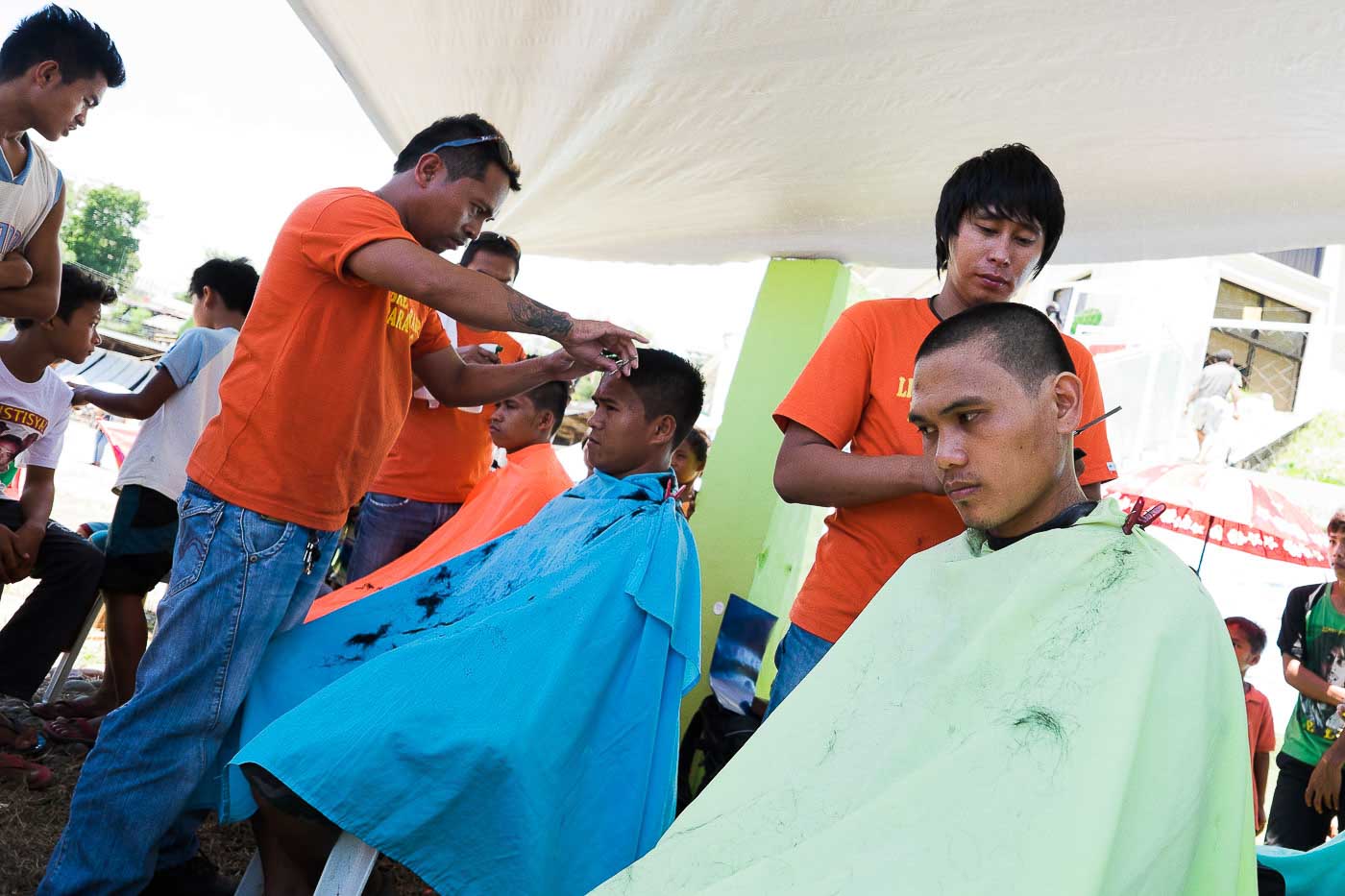

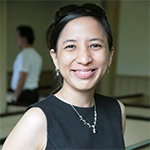 In the news on the Lumads, with all the poverty, the killings and deaths, it’s difficult to imagine any explanation other than what is presented: the brutish military unreasonably attacking members of the New People's Army (NPA) while terrorizing sweet Lumads or forcing them to fight.
In the news on the Lumads, with all the poverty, the killings and deaths, it’s difficult to imagine any explanation other than what is presented: the brutish military unreasonably attacking members of the New People's Army (NPA) while terrorizing sweet Lumads or forcing them to fight. 

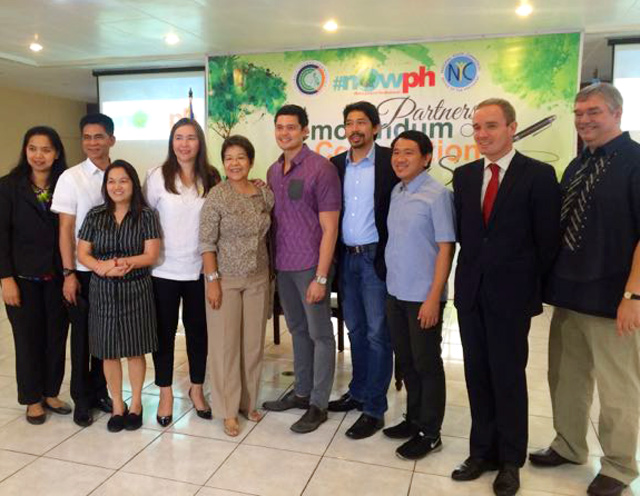
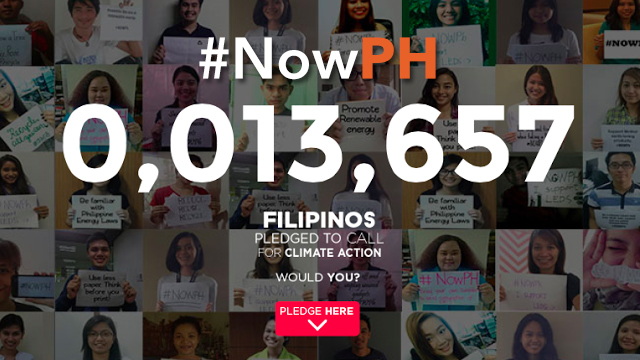



 Fernando "Bong" Esguerra Jr. is the head of Globe's Corporate Social Responsibility (CSR). Globe's CSR projects focuses on building the information and communications technology capacities of public high schools, local governments, environmental organizations, and social enterprises. They also have volunteer programs and electronic waste recycling initiatives. Esguerra was also a disaster preparedness panelist in
Fernando "Bong" Esguerra Jr. is the head of Globe's Corporate Social Responsibility (CSR). Globe's CSR projects focuses on building the information and communications technology capacities of public high schools, local governments, environmental organizations, and social enterprises. They also have volunteer programs and electronic waste recycling initiatives. Esguerra was also a disaster preparedness panelist in  For the last 12 years, Darwin Flores has been leading Smart's community engagement initiatives for the base of the pyramid communities in the Philippines. He heads the department responsible for developing ICT-oriented, socially relevant programs in the areas of education, health, disaster preparedness and response, environment and livelihood. Before joining Smart Communications, Inc. (Smart), Darwin was, for ten years, at the helm of fair trade and environmental conservation programs in Southeast Asia and the Pacific for Oxford-based Oxfam UK-Ireland and Washington D.C.-based Conservation International. Previous to this, he was a political researcher in aid of national legislation for the Philippine Senate.
For the last 12 years, Darwin Flores has been leading Smart's community engagement initiatives for the base of the pyramid communities in the Philippines. He heads the department responsible for developing ICT-oriented, socially relevant programs in the areas of education, health, disaster preparedness and response, environment and livelihood. Before joining Smart Communications, Inc. (Smart), Darwin was, for ten years, at the helm of fair trade and environmental conservation programs in Southeast Asia and the Pacific for Oxford-based Oxfam UK-Ireland and Washington D.C.-based Conservation International. Previous to this, he was a political researcher in aid of national legislation for the Philippine Senate. Ramya Gopalan leads UNDP's innovation practice in Asia Pacific, focusing on helping UNDP develop the next generation of its services based on approaches and methodologies mediated from different sectors. She manages a portfolio of around 40 innovation projects, leads the horizon scanning work and is responsible for building innovation capacity across the region. Ramya has helped set up a number of cutting edge initiatives in the area of technology and innovation and is a regular speaker at international conferences and events. She has also been contributing to exploring the nexus between public and private sector work, developing partnerships to adapt new technology and ideas for addressing development challenges and facilitating country exchanges and south-south cooperation.
Ramya Gopalan leads UNDP's innovation practice in Asia Pacific, focusing on helping UNDP develop the next generation of its services based on approaches and methodologies mediated from different sectors. She manages a portfolio of around 40 innovation projects, leads the horizon scanning work and is responsible for building innovation capacity across the region. Ramya has helped set up a number of cutting edge initiatives in the area of technology and innovation and is a regular speaker at international conferences and events. She has also been contributing to exploring the nexus between public and private sector work, developing partnerships to adapt new technology and ideas for addressing development challenges and facilitating country exchanges and south-south cooperation.  Matthew Jakab is the Disaster Geography Specialist in the Community Safety Branch of Geoscience Australia. Matthew completed a Bachelor of Geoinformatics and Surveying at the University of South Australia and has extensive experience in the application of surveying and the spatial sciences across three levels of government in Australia. Matthew has a strong interest in spatial analysis that supports urban and regional land use planning, natural resource management, infrastructure development, emergency management and natural hazard risk analysis. Matthew joined Geoscience Australia in 2009 and leads the exposure component of the Risk Analysis Project for Greater Metro Manila Area. The project is supported by the Australian aid program in the Philippines and implemented in partnership with Office of Civil Defense and the Collective Strengthening of Community Awareness for Natural Disasters (CSCAND) agencies.
Matthew Jakab is the Disaster Geography Specialist in the Community Safety Branch of Geoscience Australia. Matthew completed a Bachelor of Geoinformatics and Surveying at the University of South Australia and has extensive experience in the application of surveying and the spatial sciences across three levels of government in Australia. Matthew has a strong interest in spatial analysis that supports urban and regional land use planning, natural resource management, infrastructure development, emergency management and natural hazard risk analysis. Matthew joined Geoscience Australia in 2009 and leads the exposure component of the Risk Analysis Project for Greater Metro Manila Area. The project is supported by the Australian aid program in the Philippines and implemented in partnership with Office of Civil Defense and the Collective Strengthening of Community Awareness for Natural Disasters (CSCAND) agencies. Kai Kaiser
Kai Kaiser One of the pioneers of
One of the pioneers of 

 Paolo Benigno “Bam” Aquino IV is the youngest Senator in the country. He chairs the Senate Committee on Trade, Commerce, and Entrepreneurship, as well as the Committee on Youth. The senator is a multi-awarded youth leader and social entrepreneur who co-founded the Hapinoy Program, a microfinance and micro-enterprise support meant to lift poor Filipinos out of poverty. He became the youngest person in Philippine history to head a government agency after he was appointed as chairman of the National Youth Commission at age 25. Aquino was named as one of the Ten Outstanding Young Men of the Philippines in the category of Social Enterprise and Community Development, and was chosen as one of the Ten Outstanding Young Persons of the World in 2012.
Paolo Benigno “Bam” Aquino IV is the youngest Senator in the country. He chairs the Senate Committee on Trade, Commerce, and Entrepreneurship, as well as the Committee on Youth. The senator is a multi-awarded youth leader and social entrepreneur who co-founded the Hapinoy Program, a microfinance and micro-enterprise support meant to lift poor Filipinos out of poverty. He became the youngest person in Philippine history to head a government agency after he was appointed as chairman of the National Youth Commission at age 25. Aquino was named as one of the Ten Outstanding Young Men of the Philippines in the category of Social Enterprise and Community Development, and was chosen as one of the Ten Outstanding Young Persons of the World in 2012.  Andres Bautista
Andres Bautista Mario Domingo is a co-founder and managing partner at Natural Intelligence Solutions, PTE Ltd. lloopp. He stands side by side with customers in finding new and effective ways to solve conventional problems using Deep Machine Learning, Big Data and closed-loop self-optimization technologies. A cognitive technology geek and Project Management guru, he previously served as Head of IT Transformation Strategy at Globe Telecom and subsequently as Head of Customer Operations for a Singapore-based Company.
Mario Domingo is a co-founder and managing partner at Natural Intelligence Solutions, PTE Ltd. lloopp. He stands side by side with customers in finding new and effective ways to solve conventional problems using Deep Machine Learning, Big Data and closed-loop self-optimization technologies. A cognitive technology geek and Project Management guru, he previously served as Head of IT Transformation Strategy at Globe Telecom and subsequently as Head of Customer Operations for a Singapore-based Company. 
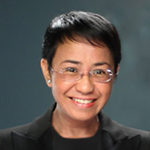

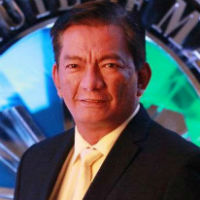 Governor Joey Sarte Salceda is often referred to as the Green Economist Governer of Albay. He is also considered as the father of the Albay and Manila Declarations on Disaster Risk Reduction (DRR) and Climate Change Adaptation (CCA). The declarations paved the way for The Climate Change Act of 2009 and the National Disaster Risk Reduction and Management Act which established DRR and CCA as priorities in both local and national government.
Governor Joey Sarte Salceda is often referred to as the Green Economist Governer of Albay. He is also considered as the father of the Albay and Manila Declarations on Disaster Risk Reduction (DRR) and Climate Change Adaptation (CCA). The declarations paved the way for The Climate Change Act of 2009 and the National Disaster Risk Reduction and Management Act which established DRR and CCA as priorities in both local and national government. 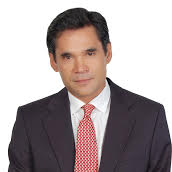 Manny Ayala is CEO of Endeavor Philippines, a non-profit that transforms markets by supporting high-impact entrepreneurs. He was previously managing director at IRG Ltd, a HK-based M&A boutique focused on the telecoms, media and tech industries. At IRG, Manny focused on a variety of projects in the Internet, mobile, television and online gaming sectors. Prior to that, Manny was the number two executive at Discovery Networks Asia, where he oversaw Strategic Planning, Programming, On-Air Branding and Program Sales. He was instrumental in turning Discovery Channel and Animal Planet into top-rated TV channels across the region. He is currently Chairman of the Board at Rappler.
Manny Ayala is CEO of Endeavor Philippines, a non-profit that transforms markets by supporting high-impact entrepreneurs. He was previously managing director at IRG Ltd, a HK-based M&A boutique focused on the telecoms, media and tech industries. At IRG, Manny focused on a variety of projects in the Internet, mobile, television and online gaming sectors. Prior to that, Manny was the number two executive at Discovery Networks Asia, where he oversaw Strategic Planning, Programming, On-Air Branding and Program Sales. He was instrumental in turning Discovery Channel and Animal Planet into top-rated TV channels across the region. He is currently Chairman of the Board at Rappler.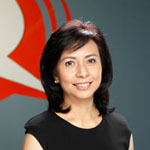
 Steve Benitez is the owner of Bo's Coffee, a local chain of coffeeshops. Starting out in Cebu in 1996, Bo's coffee now has more than 56 branches all across the country. Other than the usual fare for coffeeshops such as espressos and frappes, Bo's offers brewed coffee sourced locally from places such as Benguet, Sagada, Mt. Kitanglad, Mt. Matumtumm and Mt. Apo.
Steve Benitez is the owner of Bo's Coffee, a local chain of coffeeshops. Starting out in Cebu in 1996, Bo's coffee now has more than 56 branches all across the country. Other than the usual fare for coffeeshops such as espressos and frappes, Bo's offers brewed coffee sourced locally from places such as Benguet, Sagada, Mt. Kitanglad, Mt. Matumtumm and Mt. Apo.  Jose Sixto “Dingdong” Dantes III is a TV personality who was appointed as commissioner-at-large of the National Youth Commission in May 2014. He also serves as ambassador for Youth for the National Commission for Culture and the Arts, and is active with his foundation called Yes Pinoy Foundation. He has appeared in numerous TV shows (mostly in his home network GMA Network), movies, and advertisements since his teenage years. He now manages his own film studio named AgostoDos Pictures. He was married in December 2014 to his long-time screen partner and girlfriend Marian Rivera. The two expecting their first child on November.
Jose Sixto “Dingdong” Dantes III is a TV personality who was appointed as commissioner-at-large of the National Youth Commission in May 2014. He also serves as ambassador for Youth for the National Commission for Culture and the Arts, and is active with his foundation called Yes Pinoy Foundation. He has appeared in numerous TV shows (mostly in his home network GMA Network), movies, and advertisements since his teenage years. He now manages his own film studio named AgostoDos Pictures. He was married in December 2014 to his long-time screen partner and girlfriend Marian Rivera. The two expecting their first child on November. Pepe Diokno is filmmaker. In 2009, his debut film “Engkwentro” premiered at the Venice Film Festival and won the Lion of the Future - "Luigi de Laurentiis" award for Best Debut Film, as well as the Orizzonti Prize for New Trends in Cinema. "Above the Clouds" is Pepe's second film.
Pepe Diokno is filmmaker. In 2009, his debut film “Engkwentro” premiered at the Venice Film Festival and won the Lion of the Future - "Luigi de Laurentiis" award for Best Debut Film, as well as the Orizzonti Prize for New Trends in Cinema. "Above the Clouds" is Pepe's second film. 
 Reese Lansangan, 24, is an indie pop/folk pop musician, she has over 3,000 followers on her
Reese Lansangan, 24, is an indie pop/folk pop musician, she has over 3,000 followers on her 




 Invasions aren't always spearheaded by armies. Sometimes a released pet is all it takes to transform a country. What are the most commonly encountered Philippine animals?
Invasions aren't always spearheaded by armies. Sometimes a released pet is all it takes to transform a country. What are the most commonly encountered Philippine animals?
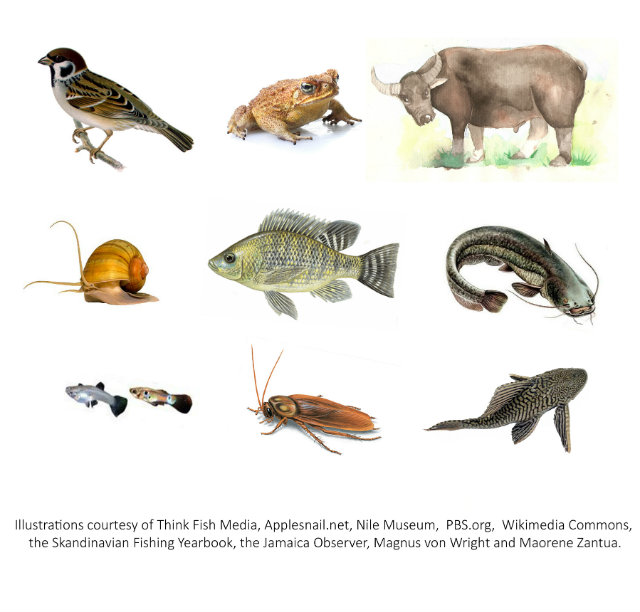
 Often when I teach Philippine Government or Introduction to Political Science classes, especially for Political Science majors, I'd ask my students to do one rather time-consuming classroom exercise.
Often when I teach Philippine Government or Introduction to Political Science classes, especially for Political Science majors, I'd ask my students to do one rather time-consuming classroom exercise. 
 MANILA, Philippines – Technology can spell the difference between victory and failure in humanity’s battle against development challenges like poverty, corruption, hunger, and climate change.
MANILA, Philippines – Technology can spell the difference between victory and failure in humanity’s battle against development challenges like poverty, corruption, hunger, and climate change. Every September 28, we celebrate the International Right To Know Day. It is celebrated to encourage civil society, journalists, and citizens to exercise their right to access information and to push government institutions to create conditions for exercising these rights.
Every September 28, we celebrate the International Right To Know Day. It is celebrated to encourage civil society, journalists, and citizens to exercise their right to access information and to push government institutions to create conditions for exercising these rights. 
 I have never dreamed of becoming a nurse. When I was a child, my eager soul was claiming to be a renowned doctor. This vision would sometimes be replaced by thoughts of becoming a scientist, a Nobel Prize-winning author, or a rock star. I have never wanted to become a nurse until I became one.
I have never dreamed of becoming a nurse. When I was a child, my eager soul was claiming to be a renowned doctor. This vision would sometimes be replaced by thoughts of becoming a scientist, a Nobel Prize-winning author, or a rock star. I have never wanted to become a nurse until I became one.
 It’s official. The
It’s official. The 


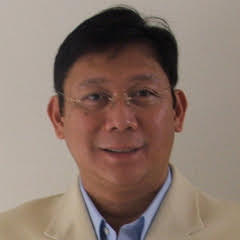 If there is a question that symbolizes the culmination of our so-called Philippine-style democracy, it is this: Nagalaw pa ba iyan (Is he still alive)? It’s a line from the film
If there is a question that symbolizes the culmination of our so-called Philippine-style democracy, it is this: Nagalaw pa ba iyan (Is he still alive)? It’s a line from the film 





 Magtatrabaho na sana ako, kaya lang hindi ko na kayang patagalin pang hindi isulat lahat ng nakuha ko mula sa pelikulang Heneral Luna ni Jerrold Tarog. Sa mga nakapanood na, malamang alam ninyo ang pakiramdam. Sana pareho tayo ng nararamdaman.
Magtatrabaho na sana ako, kaya lang hindi ko na kayang patagalin pang hindi isulat lahat ng nakuha ko mula sa pelikulang Heneral Luna ni Jerrold Tarog. Sa mga nakapanood na, malamang alam ninyo ang pakiramdam. Sana pareho tayo ng nararamdaman.